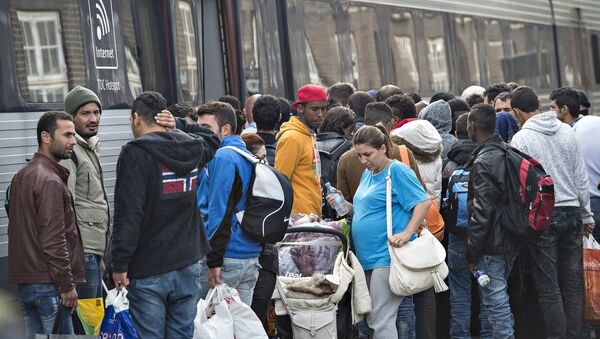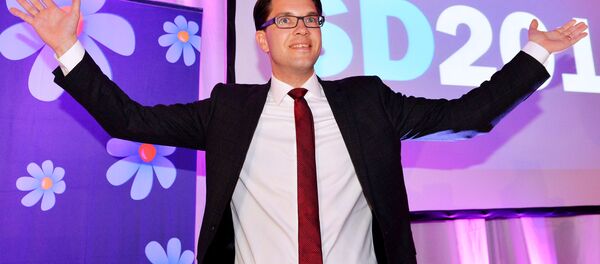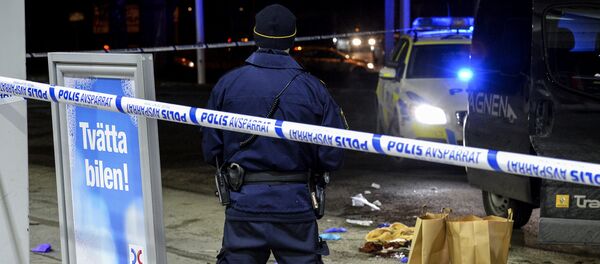The elections did not define a clear winner, leaving two main political blocs – the ruling center-left Red Green bloc and the center-right opposition Alliance – with some 40 percent of the vote each. The Sweden Democrats (SD) political party won about 18 percent of the vote, a significant gain since the 2014 elections. The parties will now have to reach an agreement to be able to form a government.
Swedes Divided Over Migration Issue
Experts argue that migration is one of the major issues behind a period of political uncertainty that Sweden is now facing.
At the same time, Teorell argued that there was still a "very strong opinion" in Sweden in favor of "more liberal traditional Swedish immigration policy."
Anders Sannerstedt, a senior lecturer at the Political Science Department of the Lund University, expressed a similar opinion, saying that the reason for a likely political deadlock in Sweden was the existing divisions in its electorate, including on the issue of migration.
"There is no consensus among the Swedish electorate on who is to govern. When it comes to migration, Sweden is heavily divided. Many Swedes would like much more generous refugee policy. But even more would rather see… a more restrictive policy," Sannerstedt underlined.
Rise of Parties Similar to SD Part of Pan-European Trend
In recent years, a number of European countries saw the rise of political parties in favor of reducing the influx of migrants, including Austria's Freedom Party which won 26 percent in the October 2017 vote, the Danish People's Party which took 21 percent at the elections in June 2015, and Jobbik party in Hungary, which gained 19 percent of the vote in the April 2018 parliamentary elections.
According to Sannerstedt, at the start of the migration crisis in 2015, Sweden received 165,000 refugees in the period of few months, which was "very difficult to handle."
"When people think about migration they think that Sweden Democrats is the most trustworthy party when it comes to that. And that explains why people think they have best solutions in that particular area," Teorell suggested.
Sweden Facing Political Deadlock
Both experts argued that Sweden is now facing a political deadlock as well as the likely resignation of Prime Minister Stefan Lofven.
"It seems likely that the prime minister would resign … Then there will be negotiations between the parties, especially between the liberal conservatives and the SD … At the moment, there is no foreseeable agreement and somebody would have to give in sooner or later. But nobody has yet indicated any will to [do so]," Sannerstedt stressed.
"What we see is a deadlock between social democratic forces and liberal conservative forces. And then we have the Sweden Democrats as a third force which makes the negotiations much more difficult," Sannerstedt underlined.
Commenting on the election results on Monday, Lofven, who is the head of the ruling coalition, refused calls to resign, inviting the opposition Alliance to talks. According to the prime minister, the elections marked "the end of bloc politics in Sweden."





